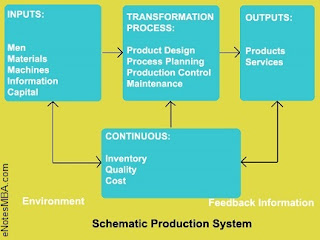Functions of Human Resource Management
Question - What do you mean by Human Resource Management? Explain various functions of Human Resource Management.
Answer
Meaning of Human Resource Management

Human Resource Management is a management function concerned with hiring, motivating, and maintaining the workforce in an organization. Human resource management deals with issues related to employees such as hiring, training, development, compensation, motivation, communication, and administration. Human resource management ensures the satisfaction of employees and the maximum contribution of employees to the achievement of organizational objectives.
According to Armstrong (1997), Human Resource Management can be defined as “a strategic approach to acquiring, developing, managing, motivating and gaining the commitment of the organization’s key resource – the people who work in and for it.”
Functions of Human Resource Management
Human Resource Management functions can be classified into the following three categories.
- Managerial Functions,
- Operative Functions, and
- Advisory Functions.
The Managerial Functions of Human Resource Management are as follows:
1. Human Resource Planning - In this function of HRM, the number and type of employees needed to accomplish organizational goals are determined. Research is an important part of this function, information is collected and analyzed to identify current and future human resource needs and to forecast changing values, attitudes, and behavior of employees and their impact on the organization.
2. Organizing - In an organization tasks are allocated among its members, relationships are identified, and activities are integrated towards a common objective. Relationships are established among the employees so that they can collectively contribute to the attainment of the organization's goal.
3. Directing - Activating employees at different levels and making them contribute maximum to the organization is possible through proper direction and motivation. Taping the maximum potential of the employees is possible through motivation and command.
4. Controlling - After planning, organizing, and directing, employees' actual performance is checked, verified, and compared with the plans. If the actual performance is found to deviate from the plan, control measures are required to be taken.
The Operative Functions of Human Resource Management are as follows:
1. Recruitment and Selection - Recruitment of candidates is the function preceding the selection, which brings the pool of prospective candidates for the organization so that the management can select the right candidate from this pool.
2. Job Analysis and Design - Job analysis is the process of describing the nature of a job and specifying the human requirements like qualifications, skills, and work experience to perform that job. Job design aims at outlining and organizing tasks, duties, and responsibilities into a single unit of work for the achievement of certain objectives.
3. Performance Appraisal - Human resource professionals are required to perform this function to ensure that the performance of employees is at an acceptable level.
4. Training and Development - This function of human resource management helps employees acquire skills and knowledge to perform their jobs effectively. Training and development programs are organized for both new and existing employees. Employees are prepared for higher-level responsibilities through training and development.
5. Wage and Salary Administration - Human resource management determines what is to be paid for different types of jobs. Human resource management decides employee compensation which includes - wage administration, salary administration, incentives, bonuses, fringe benefits, etc,.
6. Employee Welfare - This function refers to various services, benefits, and facilities that are provided to employees for their well-being.
7. Maintenance - Human resources is considered an asset for the organization. Employee turnover is not considered good for the organization. Human resource management always tries to keep their best-performing employees with the organization.
8. Labour Relations - This function refers to human resource management interaction with employees represented by a trade union. Employees come together and form a union to obtain more voice in decisions affecting wages, benefits, working conditions, etc,.
9. Personnel Research - Personnel research is done by human resource management to gather employees' opinions on wages and salaries, promotions, working conditions, welfare activities, leadership, etc,. Such researches help in understanding employee satisfaction, employee turnover, employee termination, etc,.
10. Personnel Record - This function involves recording, maintaining, and retrieving employee-related information like - application forms, employment history, working hours, earnings, employee absents and presents, employee turnover, and other data related to employees.
The Advisory Functions of Human Resource Management are as follows:
Human Resource Management is expert in managing human resources and so can give advice on matters related to human resources of the organization. Human Resource Management can offer advice to:
1. Advised to Top Management
The personnel manager advises the top management in the formulation and evaluation of personnel programs, policies, and procedures.
2. Advised to Departmental Heads
The personnel manager advises the heads of various departments on matters such as manpower planning, job analysis, job design, recruitment, selection, placement, training, performance appraisal, etc..




